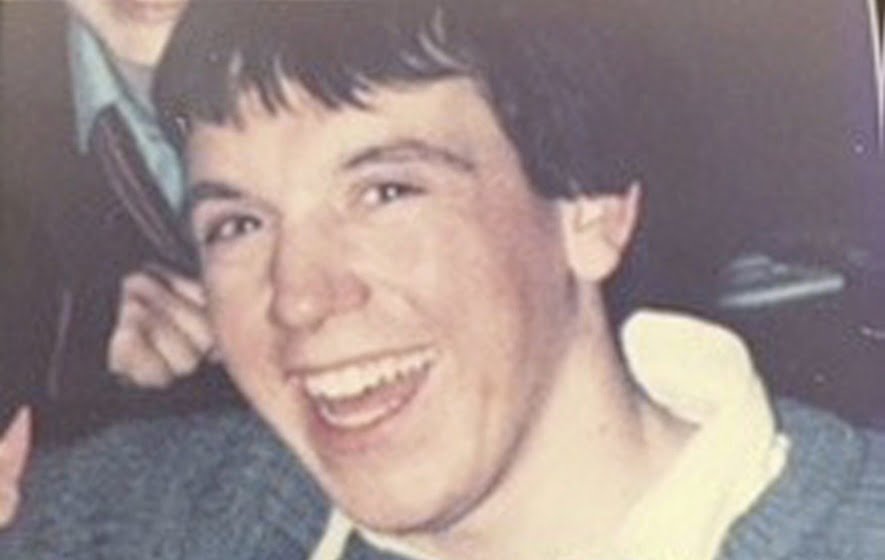The inquest into the death of Francis Bradley resumed this week for the final days of evidence. Although this week was intended to hear only witnesses who had to be rescheduled, State parties are now raising new issues in an attempt to jeopardise the inquest’s completion.
In a case administration hearing last week, it was revealed that an Army surveillance sub-unit recorded a video of what a soldier believes is the beginning of the soldiers’ encounter where they shot Francis Bradley. The Ministry of Defence (MoD) has been aware of the video since at least March 19th but failed to disclose to the court that this vital piece of evidence exists. The MoD stated that the tape no longer exists and there is no record or description of its content. The inquest has been plagued by similar failures and delays by State parties and lawyers for former military witnesses.
Mr Richard Horwell KC, on behalf of Devonshires who represents former soldiers, has yet to explain the discrepancies in documents provided to expert witnesses. In their letters of instruction to Dr Karim Brohi, a trauma and vascular surgeon whom Devonshires has retained as an expert witness in the case, they provided background information and witness statements to inform Dr Brohi’s report. However, the letters of instruction contain several statements that contradict the soldiers’ own witness statements. Lawyers for the coroner have instructed Devonshires to disclose the origin of this information, but Mr Horwell claims the information is protected under legal professional privilege.
In a heated debate yesterday, Mr Horwell claimed the matter was raised late and that Devonshires is entitled to additional time to respond. However, he has already failed to meet deadlines regarding the same matter – as recent as Monday – and Devonshires has had since March to address these concerns. Coroner Irvine criticised Mr Horwell’s inadequate response and request for more time as ‘a delaying tactic.’ The issue will be heard in full on Thursday, to determine if Devonshires will, indeed, be required to hand over the origin of the contradictory accounts.
Despite continued requests, Devonshires also still refuses to provide information and correspondence in a timely manner to lawyers for the Bradley family. Only Tuesday morning, the day of Dr Brohi’s evidence, did the family’s lawyers receive one of his reports that should have been made available several days before.
During his testimony, Dr Brohi admitted that although he makes no mention of the inconsistencies, some of his findings were based on the contradictory information Devonshires provided him. Although he initially stated that he relied only upon the soldiers’ witness statements and post-mortem documents to form his opinions, cross-examination established that the letters of instructions were the only possible source for various information in his report. Questioning by Karen Quinlivan KC, counsel for the Bradley family, also revealed that portions of Dr Brohi’s findings relied on speculation rather than fact and that he provided opinions on areas he admits are outside his area of expertise. Much of his report directly contradicts the forensic, ballistic and pathology experts who have already testified and are in strong agreement with their findings.
Dr Brohi’s report was no doubt intended to support the soldiers’ claims that Francis Bradley posed such a serious and active threat, even while he lay helpless on his back, that they were justified in firing the three fatal shots at close range. Instead, the report exposes the soldiers’ accounts as inconsistent, self-serving, and ultimately incompatible with the rest of the evidence.
Mr Bradley’s family has been present at every hearing, listening even as his injuries are described and debated in detail. They have waited decades for this inquest. As it finally approaches its conclusion, State parties are trying to exploit the Legacy Act’s May 1st deadline to once again rip the possibility of justice from the family’s hands.
It was astounding, then, when Mr Horwell alleged that Devonshires and the soldiers they represent are the ones disadvantaged by the very legislation that was designed to shield soldiers from facing justice. In his request yesterday for more time to support his claim of legal professional privilege, Mr Horwell stated:
Nowhere in the Legacy Act will it be found a section where it says justice is to be abandoned just to finish an inquest by the due date. Justice must take its course in this inquest, as it must take its course in any proceedings. And justice is what we are asking for.
Justice must take its course: the soldiers who executed Francis Bradley must be held to account. After all, justice is what his family is asking for.











